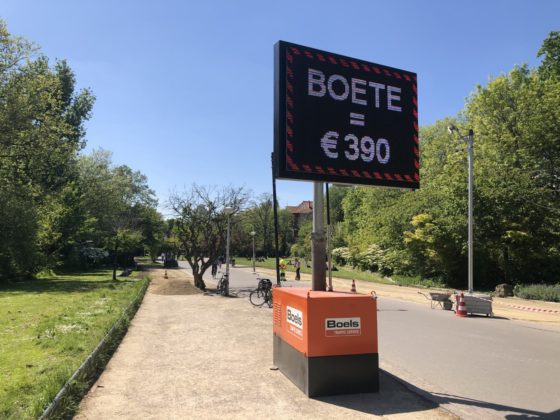Confusion over social distancing laws: you will get a criminal record if fined


Police and wardens have handed out nearly 10,000 fines for breaking social distancing and other coronavirus rules, but many people are unaware they could end up with a criminal record, website Nu.nl reported on Thursday afternoon.
Techically, the fines are a legal penalty which has been imposed without the involvement of the courts. And any penalty higher than €100 is noted on criminal records, Jeroen Soeteman, of the Dutch association of criminal lawyers told the website.
‘Minors get fined €95 so that is not a problem,’ he said. ‘If you are an adult, then you will have a criminal record which will remain in place for five years.’ The fine for breaking coronavirus rules is €390.
Having a record means you may be unable to get a certificate of good behaviour (VOG) which is needed for many jobs, such as nursing or joining the police, he points out. ‘The government should brief people better about the consequences,’ he said.
Dozens of people have already signed up to make a formal protest about the fines, with one lawyer telling the Volkskrant he has at least 80 cases on his books.
Meanwhile, the Volkskrant says there is a great deal of confusion about what actually constitutes a breach of the rules and in the different way the rules are being applied.
For example, five friends who met in a car park, each in their own car, were fined for breaking the ban on organised events. Students, who share a kitchen and bathroom have been fined for eating together outside, even though inside it would not be a problem.
Other cases outlined by the paper include that of a 15-year-old girl who was fined after meeting two friends in a park and sitting on a bench for a chat. Yet a group of 200 protesting farmers were not fined, because they were keeping to the 1.5 metre rule, the paper said.
And since Monday, groups of adults have been allowed to take part in sports outdoors, as long as they keep to the 1.5 metre rule – further adding to the confusion.
Warning
‘Police officers have the right of discretion, but in principle, we warn first and then fine,’ police spokeswoman Wendy Gehrmann told broadcaster NOS.
In addition, the legal basis for the social distancing laws is in doubt, constitutional lawyers say. The rules have been introduced under emergency powers but the eight-week duration does not have a legal basis, Groningen University professor Jan Brouwer told the Volkskrant.
The government is currently working on legislation which would anchor the measures more securely in law.
Thank you for donating to DutchNews.nl.
We could not provide the Dutch News service, and keep it free of charge, without the generous support of our readers. Your donations allow us to report on issues you tell us matter, and provide you with a summary of the most important Dutch news each day.
Make a donation